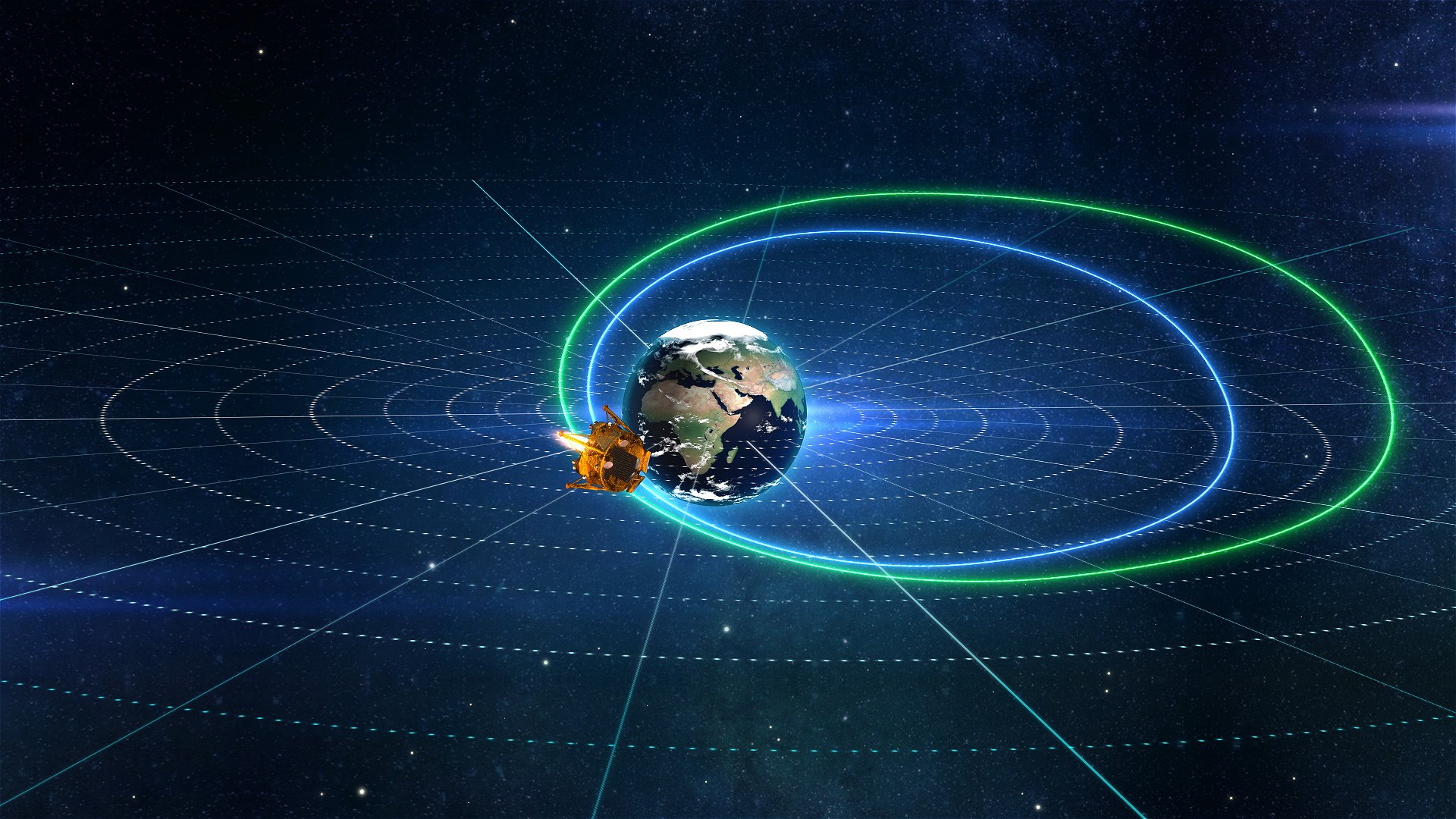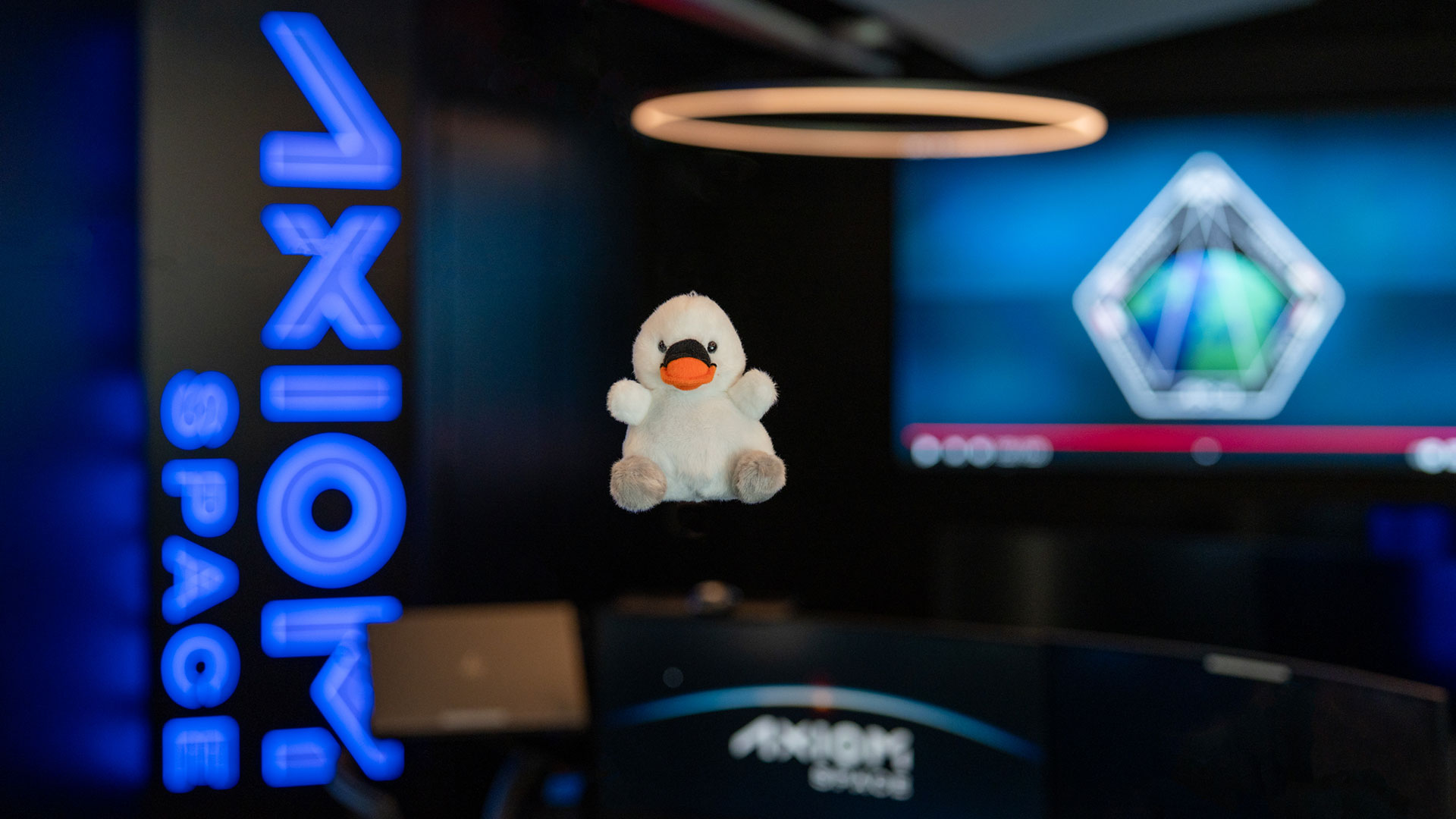
Israel's first lunar lander remains on course for the moon despite a recent glitch, mission team members said.
The robotic lander, known as Beresheet, missed a planned orbit-raising engine burn last Monday (Feb. 25) after suffering an unexpected computer reset. But Beresheet's handlers quickly got the spacecraft back online, and the lander managed to execute the maneuver on Thursday (Feb. 28).
And the burn did its job, mission team members said.
Related: Israel's 1st Moon Lander Beresheet in Pictures
"We have a few more trajectory corrections [to do], but we seem to be on the right path," SpaceIL co-founder Yonatan Winetraub said in a video update today (March 4). (The video was posted on YouTube, but it was made unavailable shortly thereafter.)
SpaceIL is the nonprofit organization that runs Beresheet's mission, in concert with the company Israel Aerospace Industries. SpaceIL started as an entrant in the Google Lunar X Prize (GLXP), a $30 million competition that asked privately funded teams to put a robot on the moon, have it move at least 1,650 feet (500 meters) and beam home high-resolution imagery.
The GLXP ended last year without a winner, but SpaceIL continued to develop its moon lander, as did several other teams.
Get the Space.com Newsletter
Breaking space news, the latest updates on rocket launches, skywatching events and more!
The $100 million Beresheet lander, whose name means "in the beginning" in Hebrew, launched on Feb. 21 atop a SpaceX Falcon 9 rocket. It will continue orbiting Earth in ever-widening loops until April 4, when it will be captured into lunar orbit, if all goes according to plan.
A historic moon landing — the first ever by Israel, or a privately funded group, or anyone aside from the governments of the Soviet Union, the United States and China — will follow on April 11.
Today's video update also a provided an explanation for the computer reset: Fast-moving particles in the Van Allen radiation belts likely knocked out Beresheet, which had only "partial protection" against such events, Winetraub said.
But hopefully it won't happen again. After the reset, mission team members beefed up the lander's defenses, "making the software more resilient to those kind of events, and make sure that the maneuver is executed even if the computer gets reset," Winetraub said. "And on Thursday, this actually worked."
Beresheet will perform a bit of science work during its surface mission on the moon, which is designed to last two Earth days. But the main goal is to advance Israel's space program and to inspire kids in that nation, and around the globe, to care more about science, technology, engineering and math.
Mike Wall's book about the search for alien life, "Out There" (Grand Central Publishing, 2018; illustrated by Karl Tate) is out now. Follow him on Twitter @michaeldwall. Follow us on Twitter @Spacedotcom or Facebook.
Join our Space Forums to keep talking space on the latest missions, night sky and more! And if you have a news tip, correction or comment, let us know at: community@space.com.

Michael Wall is a Senior Space Writer with Space.com and joined the team in 2010. He primarily covers exoplanets, spaceflight and military space, but has been known to dabble in the space art beat. His book about the search for alien life, "Out There," was published on Nov. 13, 2018. Before becoming a science writer, Michael worked as a herpetologist and wildlife biologist. He has a Ph.D. in evolutionary biology from the University of Sydney, Australia, a bachelor's degree from the University of Arizona, and a graduate certificate in science writing from the University of California, Santa Cruz. To find out what his latest project is, you can follow Michael on Twitter.
